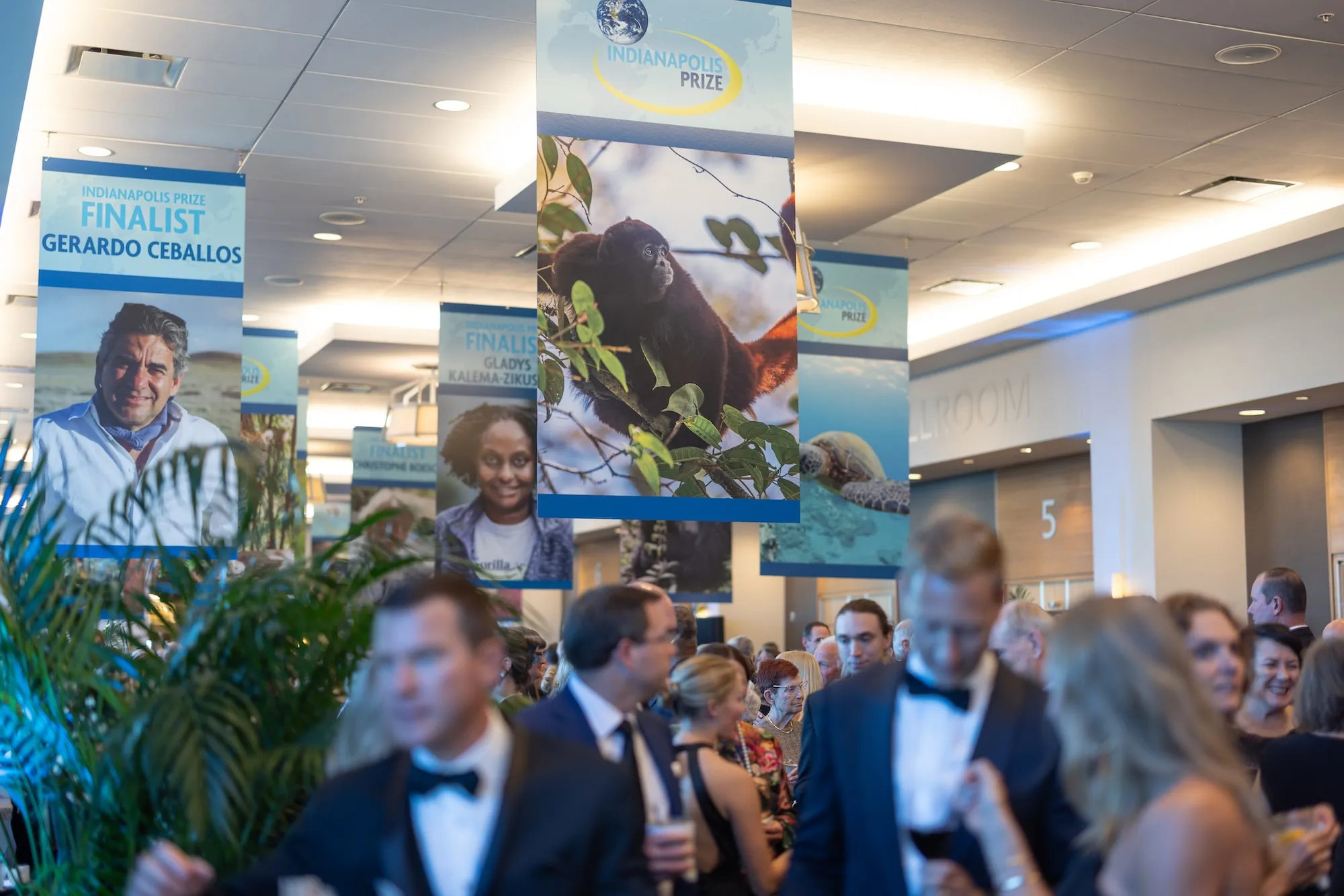
Get Involved
The Indianapolis Prize is an international leader in conservation and recognizes individuals in the field who are protecting species and creating successful conservation methods that ensure future generations will live in a flourishing and sustainable world. What initially began as a simple quest the Prize has grown to be an internationally renowned and recognized conservation program and award, celebrating the victories of conservationists who are saving threatened species all over the world. With your support we can continue to recognize and reward the important work that can reverse a grim future for animals on the path to extinction to a bright one. Our goal is to draw global attention to the work of animal conservationists and reach young minds early in an effort to educate and create a world worth inheriting. The Prize relies on the generosity of sponsorships, donations and attendees whose gifts are used to connect people across the world with those who are dedicated to animal conservation. Together we will advance change and increase impact for animal conservation. If you would like to learn more how you may establish your legacy by supporting the Indianapolis Prize or becoming a sponsor, please contact us below or call 317-630-2004.

